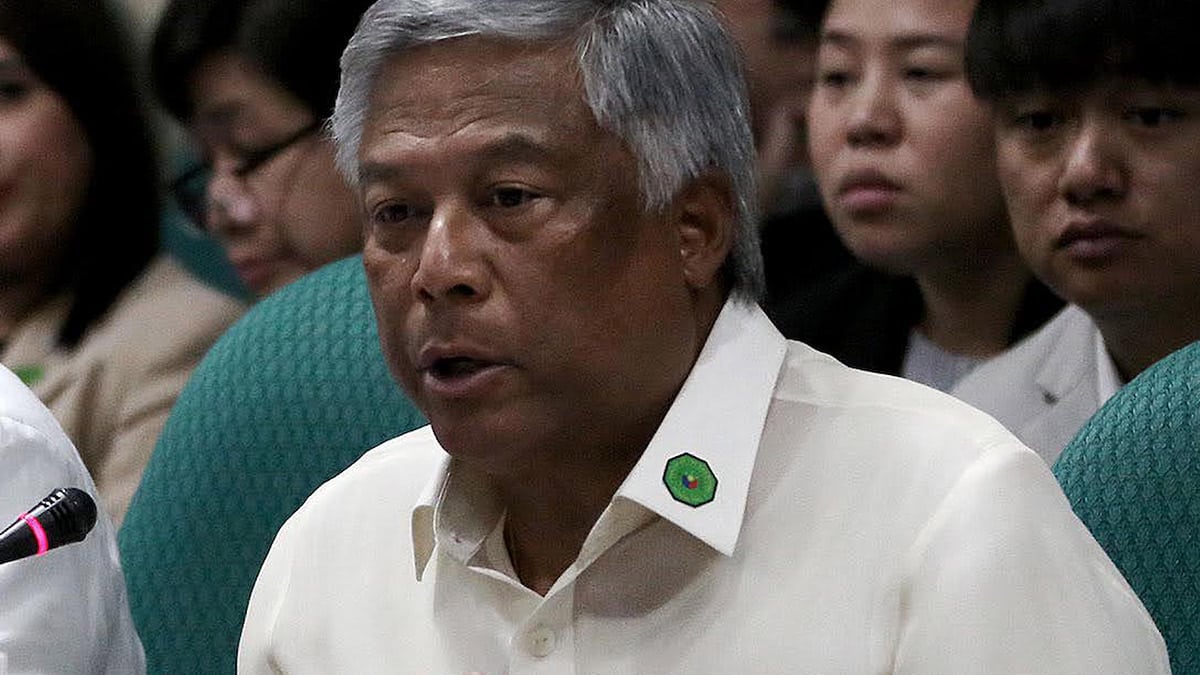MANILA, Philippines — President Ferdinand Marcos Jr.’s sweeping directive to ban all Philippine offshore gaming operators (Pogos) received thunderous applause and a standing ovation at the Batasang Pambansa on Monday, but people tasked to carry out his tall orders were left wondering what, exactly, will be banned?
For the chair of the Philippine Amusement and Gaming Corp. (Pagcor), Marcos’ orders were straightforward: The ban will cover even the 43 remaining legal Pogos—now called internet gaming licensees (IGLs) by the gaming regulator—that have valid licenses to operate.
READ: Marcos: ‘All Pogos are banned!’
“His orders are very clear: ‘I am instructing Pagcor to wind down the operations of all Pogos,’” Tengco told the House joint committees on public order and safety and games and amusement during their hearing on Tuesday.
“I cannot wind down the operations of illegal Pogos because those are not within my jurisdiction. But the 43 in my jurisdiction, that’s clear, I will wind them down,” he stressed. “Congressmen, I am not in disagreement (with the directive), and as I told this committee in the previous hearing, I will follow the President’s orders and what he said was very clear.”
READ: Pagcor to act on Pogo ban; 42,000 Filipino workers to be displaced
Tengco’s clarification followed Surigao del Norte Rep. Robert Ace Barbers and ACT Teachers Rep. France Castro’s questions about the difference between Pogos and IGLs, as they expressed concerns that the ambiguity in wording could leave loopholes in enforcing the ban.
The ambiguity left even lawmakers like Albay Rep. Joey Salceda—who is part of a House minority that prefers to continue allowing legal Pogos to operate—to call on the President to find a way to ban Pogos without affecting IGLs.
Rebranding
But as Tengco explained to the panel, the term IGL came into force after he assumed office last year, when he oversaw the implementation of stricter regulations for Pogos and rebranded them to rid these Chinese-centric gaming operators of the “stigma” associated with them.
The Pogo industry, which boomed during the Duterte administration, has been repeatedly linked to crime syndicates engaged in human trafficking, kidnapping, robbery-extortion, money laundering, online scams and lately, espionage.
Pogo used to be the official designation for firms operating in the Philippines that offered online gambling services exclusively to markets outside the country, specifically China. To be legal, they must be licensed by Pagcor and were obliged to bar any individual in the Philippines, Filipino citizens regardless of location, and potential patrons in countries and territories where offshore gambling is illegal from availing themselves of their services.
When Tengco assumed office, he placed all Pogo licensees on a probationary stance and required them to reapply for licenses as part of its new regulatory framework. This included the raided Pogo Lucky South 99 in Porac, Pampanga, which previously had a valid license but failed the new guidelines.
As of July 16, Pagcor said there were 38 duly licensed IGLs and seven with provisional licenses.
“We changed the structure and guidelines and the name, so there is a big difference in how they operate,” Tengco noted. “That’s why from 298, we were able to whittle down the number to 43 because many did not qualify.”
Interrogated by Castro, Tengco conceded that Pogos and IGLs were the same and were the ones to be banned.
“Make sure to clarify that when you make the recommendation to the President,” Castro told the Pagcor chair. “We don’t want to end up in a situation where Pogos are ‘banned’ but IGLs will remain.”
Enough time
Given the five-month deadline given by the President for all Pogos to leave, Interior Secretary Benjamin Abalos Jr. said he had already talked to Tengco and agreed to hold an interagency meeting with other offices involved to carry out President Marcos’ order.
The Presidential Anti-Organized Crime Commission (PAOCC) also said this was enough time to identify the major players and foreign employees in the industry.
“This five-month period provides ample time not only to identify the bosses but, more importantly, this will be enough to create a database of all foreign nationals working in these companies,” PAOCC Undersecretary Gilbert Cruz said in a statement.
He said the database was crucial to ensure that all foreign Pogo workers would be subsequently deported to their countries of origin.
In Congress, Speaker Martin Romualdez on Tuesday gave marching orders to Congress to draft legislation that would give teeth to the President’s directive.
He said pending measures in the House should be harmonized and result in the filing of a substitute bill and requested the chairs of the House committees on public order and safety and games and amusement to “make this the priority.”
Romualdez added the measure should be “ironclad” such that it would not only stop Pogo operations by the end of the year, but should also prevent future administrations from “resurrect[ing] these criminal and illegal activities.”
Total ban on gambling
The leader of the 300-strong House, however, said the directive would “not stop” ongoing House investigation on the criminal and other illegal activities linked to Pogo.”
Senate President Francis Escudero said their investigation into the Pogo industry would likewise continue.
However, he said there was no law, executive order (EO) or administrative order (AO) needed to implement Marcos’ directive.
“An order suffices. There was no EO, AO or law that legalized Pogos. A license issued by Pagcor made these Pogos legal, so banning them will just need Pagcor to revoke that license,” he said in a press briefing.
Escudero said Tengco had no choice but to automatically follow the President’s order.
He added that if the government really wanted to ban gambling in the country, it must cover all its forms.
“Whether it’s Pogo, Pigo, or casinos—let’s ban them altogether if we truly believe that they are not doing any good for our society and our fellow citizens,” he stressed. —with a report from Inquirer Research


